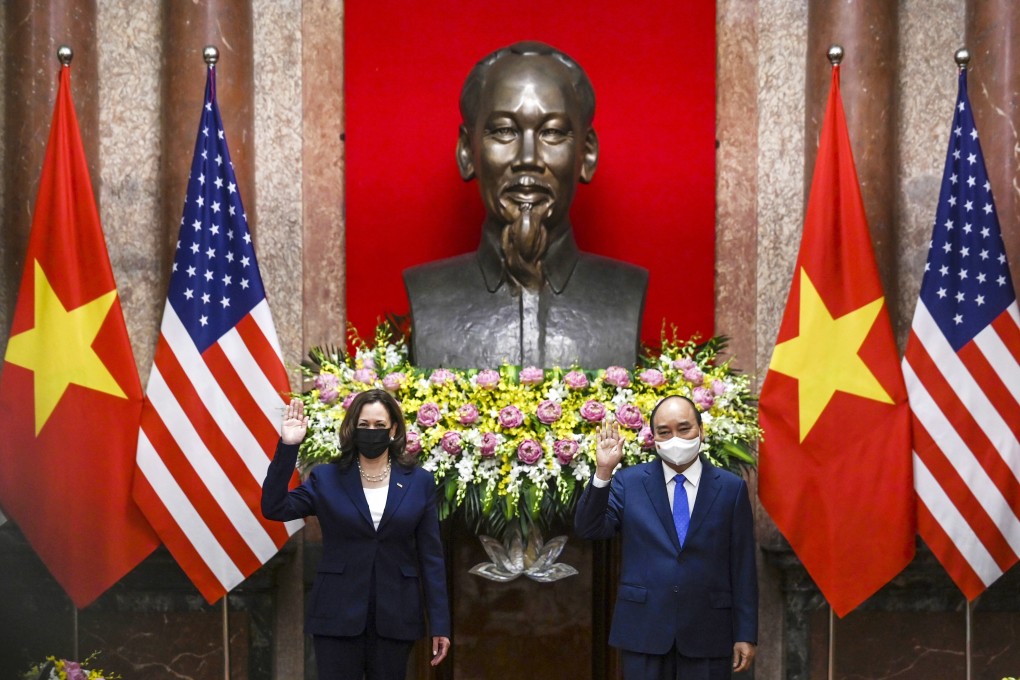Advertisement
Kamala Harris in Vietnam: China takes shot at US’ bullying South China Sea claims
- Chinese embassy in Hanoi accuses Washington of stoking tensions between neighbours in the contested waters
- Differences in political values and government systems stand in way of alignment between Vietnam and US, analysts say
Reading Time:3 minutes
Why you can trust SCMP
14

China’s embassy in Hanoi hit back at US Vice-President Kamala Harris’s criticism of Beijing’s assertiveness in the South China Sea, accusing Washington of acting as the “black hand” behind the tensions in the disputed waters.
The statement came as Harris wrapped up her first trip to Singapore and Vietnam on Thursday, with repeated pledges to help China’s neighbours push back against Beijing’s “bullying and excessive maritime claims”.
“We welcome stiff competition, we do not seek conflict,” she said in Hanoi on Thursday, the final day of her trip.
Advertisement
“[But] we’re going to speak up when there are actions that Beijing takes that threaten the rules-based international order ... such as activity in the South China Sea.”

03:25
What has Kamala Harris achieved during her week-long trip to Southeast Asia?
What has Kamala Harris achieved during her week-long trip to Southeast Asia?
Observers said the escalated war of words underlined Beijing’s wariness over US President Joe Biden’s redoubled efforts to woo Southeast Asian countries, especially Vietnam, away from China. US Secretary of Defense Lloyd Austin toured Vietnam, Singapore and the Philippines a month ago in another bid to bolster engagement and security ties with the region.
Advertisement
Advertisement
Select Voice
Choose your listening speed
Get through articles 2x faster
1.25x
250 WPM
Slow
Average
Fast
1.25x